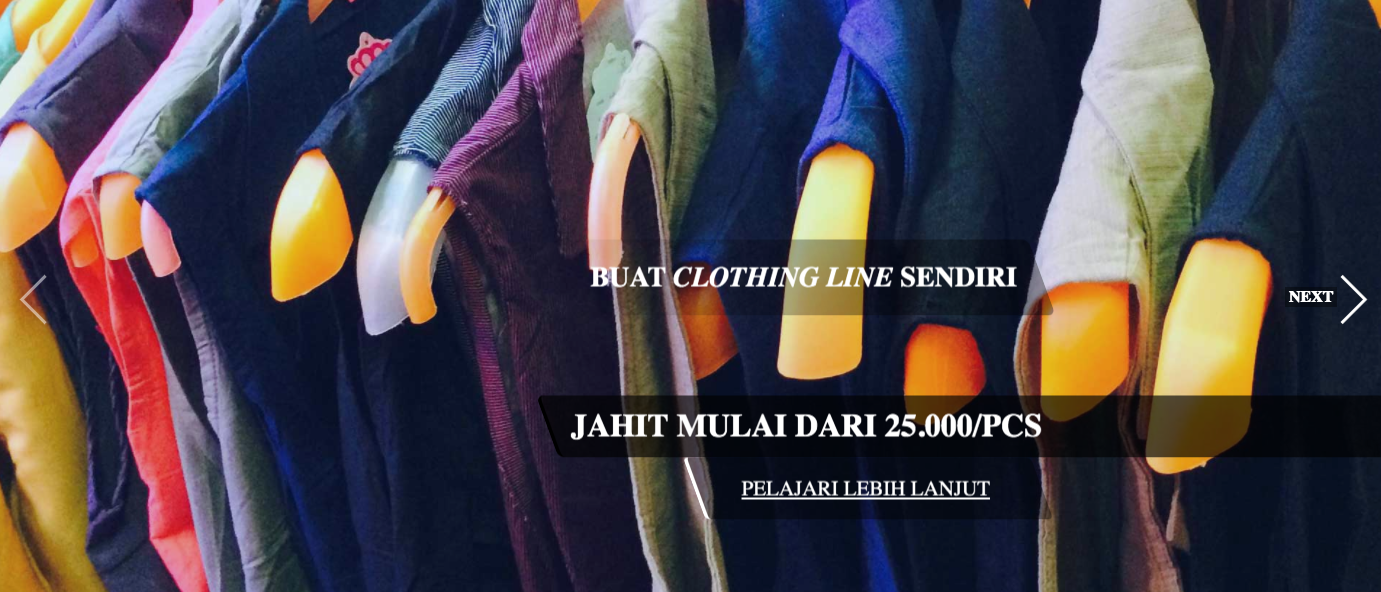
Curious kids. Joan Simon.
In this monthly series we take a look at Indonesia’s next wave of tech and business innovators.
Here are five local startups that recently caught our eye. All were finalists in NextDev, a startup competition run by Indonesia’s largest telco.
Kostoom

Kostoom is an on-demand tailor service. You can choose from a variety of styles from its website, or upload pictures of the type of gown you want made. Kostoom works with its network of trusted tailors and ships it back to you when ready.
Founder Putry Yuli says she’s been in the garment business for 20 years. The business model makes clever use of an underutilized resource in Indonesia – freelance tailors who work from home or small shops. Putry knows the ones that are good at their trade and directs orders to whoever has free capacity.
Kostoom does not provide clothing material, so you’ll have to send that to the firm’s office before the tailors can get to work. If you live in greater Jakarta, the startup can also send someone to your house to take measurements – but it costs an additional fee. In the future, the startup hopes to overcome some of these barriers to growth with solutions such as stocking up on clothing material so customers can choose from a catalog.
Kostoom’s no stranger to startup competitions. In addition to being one of the winners of NextDev, it was a finalist at Tech in Asia’s Arena battle this year, and won the Indonesian chapter of global startup competition Seedstars World, among others.
Mattreal
Mattreal is an app that helps you calculate costs for renovations around the house. Let’s say you want to have your walls painted. You can put in the estimated number of square meters and the app will spit out cost estimates from a number of vendors.
It also has a map feature which shows different types of vendors, such as carpenters, interior designers, and more, nearby.
It’s available on Android and iOS.
Kredibel

Kredibel is on a noble mission to combat online fraud.
Its product has three components. The first is an online form where users who have been cheated by online sellers can submit complaints. The second is a verification process for online sellers who can be whitelisted if they pass all criteria. Finally, Kredibel provides a search tool. If you have doubts about an online merchant, you can find out if anyone else has filed a complaint about them before.
The system makes sense in Indonesia’s informal online selling environment. Many merchants operate stores on messaging apps or Instagram where buyers aren’t given enough background information.
The startup charges a fee from online stores that want to get verified.
Kentongan
Kentongan is a social networking app that connects people in a neighborhood – comparable to Nexdoor in the US.
In Indonesia, neighborhoods are administrative units. Each neighborhood has a leader, responsible for collecting garbage fees, or informing residents about issues, such as malaria outbreaks and upcoming festivities. Its features are nicely adapted to a local context.
It’s not clear how Kentongan plans to monetize. It came to life as one of the winners of a hackathon held last year.
Juru.id

Juru is an app designed to help people manage space. The original idea was for parking. If you own a popular parking lot, the app helps you manage your staff and generates transparency about the income. It also offers regular customers the chance to pay via subscription so they don’t need to have cash ready each time they enter the lot.
The next scenario Juru is preparing for is markets. As a space owner, you’ll want to be able to assign empty stalls to vendors and keep an eye on all payments. Finally, a third possible application is for waste management sites. The manager of a landfill could for example use it to monitor incoming deliveries and income from selling to recyclers.
This post 5 Indonesian startups that are just getting started – December 2016 appeared first on Tech in Asia.
from Tech in Asia https://www.techinasia.com/indonesian-startups-rise-dec-2016
via IFTTT
No comments:
Post a Comment